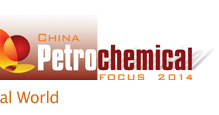PetrochemicalEconomics
14-16 April 2014, Shanghai China
Course Overview:
The workshop will deliver an understanding of present and future competitive position of petrochemical operations in different regions of the world using different feedstock. The workshop and case studies will develop the fundamental costs of production from a wide range of cracking operations and give an understanding of the threats to profitability over the next decade. A particular focus will be estimates for production costs for ethane cracking operations in the Middle East and the USA compared to integrated naphtha cracking operations in Asia and how these will change with the prevailing price of energy.
The seminar will develop a series of case studies which will illustrates the key driving forces and permit the estimation of how feedstock price and byproduct credits will impact on olefin and resin production cost. The prospects for petrochemicals production by technology other than steam cracking will be analyzed.
An important feature of the workshop will be the discussion of the use of shale gas in the chemicals production chain and developing new routes from coal and bio-feedstock to chemicals. The potential for increasing profitability by feedstock selection and selection of higher valued downstream products will be outlined.
| Agenda at a Glance |
Day 1
- Feedstock Availability and Refinery Demand
- Feedstock Price and Price Differentials
- Product Yields
- Product Prices
|
Day 2
- Production Costs
- New Routes via Methanol to Chemicals
- Alternative And Emerging Routes To Chemicals
- Case Studies
|
Day 3
- Major Downstream Products
- High Added Value Downstream Products
- Impact of Carbon Pricing on Production Cost
- Further Case Studies
|
Click to Download Brochure
Benefits of Attending
- Understanding the key drivers and estimating the cost of production of chemical operations
- Understanding cost of production in different producing regions
- Ability to determine the competitive position of individual facilities
- Options for selecting feedstock for increasing profitability
- Product price trends including the impact of China
- Potential for increasing profitability by maximising downstream value
- Options and cost for C3 and C4 olefin production by non-cracking routes
- Threats to existing operations from feedstock changes such as shale gas or biomass
Contact
For More Information, Please Contact
Mr. Elliott Wang
Tel: +86 21 6393 1899
Fax: +86 21 6840 7632
E-mail:
training@cdmc.org.cn



